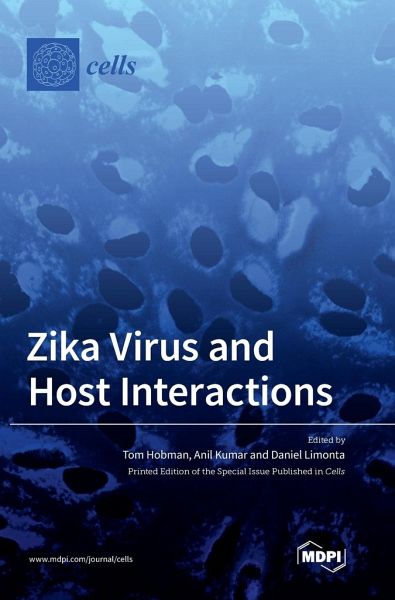
Zika Virus and Host Interactions
Versandkostenfrei!
Versandfertig in 1-2 Wochen
83,99 €
inkl. MwSt.

PAYBACK Punkte
42 °P sammeln!
Zika virus (ZIKV), one of the flavivirus family members transmitted by mosquitos, was declared a Public Health Emergency of International Concern by the WHO in February 2016 because of clusters of newborn microcephaly cases and other neurological disorders in Brazil. Most ZIKV infections result in a self-limited flu-like febrile disease, however, if contracted during pregnancy, the virus can also infect fetuses and cause a spectrum of birth defects known as congenital Zika syndrome. To date, no vaccines or antiviral drugs are licensed for ZIKV, and the virus has spread and become endemic to ma...
Zika virus (ZIKV), one of the flavivirus family members transmitted by mosquitos, was declared a Public Health Emergency of International Concern by the WHO in February 2016 because of clusters of newborn microcephaly cases and other neurological disorders in Brazil. Most ZIKV infections result in a self-limited flu-like febrile disease, however, if contracted during pregnancy, the virus can also infect fetuses and cause a spectrum of birth defects known as congenital Zika syndrome. To date, no vaccines or antiviral drugs are licensed for ZIKV, and the virus has spread and become endemic to many tropical and sub-tropical countries. Included in this book are thirteen reports addressing diverse aspects of ZIKV-host interactions. These studies range from basic science to clinical research. It is expected that findings from these studies will contribute to a better understanding of the host cells interacting with ZIKV, and may serve as the basis for new diagnostics, antiviral therapies, and vaccine design.














